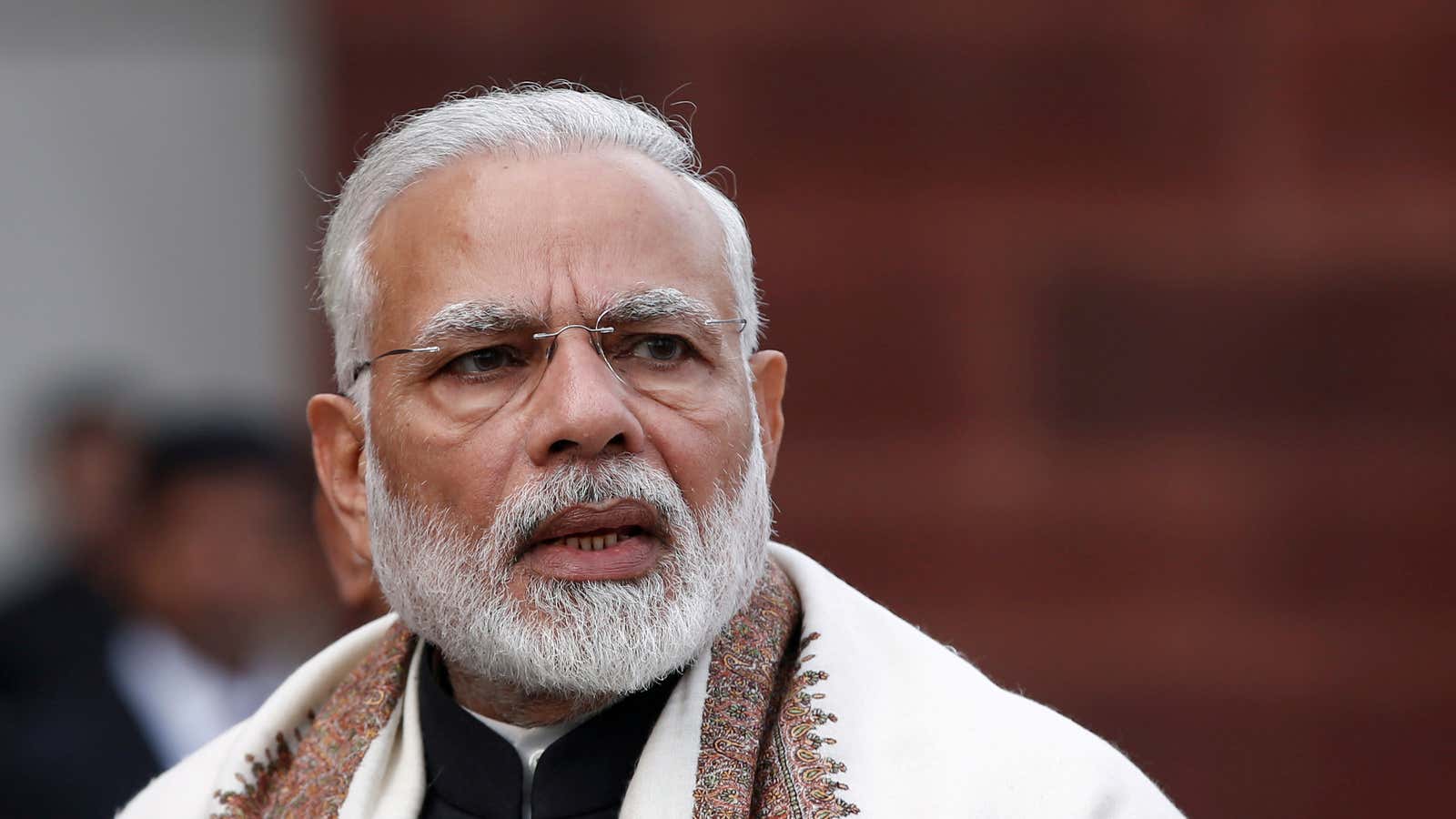Imagine the American president going on a fast to tame an intransigent US Congress, or the British prime minister staying hungry because members of parliament (MPs) weren’t falling in line.
If it sounds bizarre, then here’s some news from India: Prime minister Narendra Modi is on a day-long fast today (April 12) protesting the washout of the recently-concluded budget session of parliament. He’s joined by Amit Shah, the president of the ruling Bharatiya Janata Party (BJP).
“The people who couldn’t gain power in 2014 don’t want the country to move forward. They didn’t let parliament work for a single day. They killed democracy and we will observe fast to bring their crime in front of world. I will also hold fast. But I will continue my work,” Modi told his party’s MPs ahead of the protest. The prime minister has also asked his supporters, within and outside the party, to observe the fast across the country.
Indeed, India witnessed just 25% productivity in the last parliament session, ranking it, reportedly, among the worst in a decade. From the outrage over the $2 billion loan fraud at the state-run Punjab National Bank to a no-confidence motion moved against the government by a former BJP ally, multiple issues brought legislative activity to a grinding halt.
However, at what stage is it alright for the head of a government with a historic majority in the house to play victim?
A diversionary tactic?
Despite the BJP’s compelling parliamentary strength and the fact that it rules more states than ever in its history, the party’s image, and that of the government, stands much diminished today compared to 2014 when it stormed to power.
With a year to go before India goes to polls, the economy is wobbly, business and consumer sentiments are depressed, and social fractures have widened. There is a whole host of other issues: the dissatisfied state governments of Andhra Pradesh and Tamil Nadu, agitated Dalits (formerly deemed untouchable) and farmers, serious allegations of crime against BJP legislators and its supporters.
The BJP, as with its rival Congress, has also been caught in the Cambridge Analytica-data theft quagmire. This at a time of alleged data leaks from the government’s own biometric identity programme, Aadhaar.
So Modi is undoubtedly facing headwinds in the run-up to 2019. The fast, thus, seems an attempt to press reset.
But does it wash?
After all, during its days in opposition, the BJP virtually monopolised the tactic of stalling parliament.
For instance, the monsoon session of 2012 worked for just a fifth of the scheduled hours as the BJP raised a stink over alleged corruption in coal mine allocations under the then Congress-led government. Key pieces of legislation, including anti-money laundering measures and land acquisition for industrial purposes, had to be abandoned back then due to this.
When criticised for wasting the nation’s time and money, senior BJP leader—now finance minister—Arun Jaitley had said that stalling was a legitimate parliamentary tool available to the opposition. “Not allowing parliament to function is a form of democracy like any other form,” Jaitley had infamously said in 2012.
So the situation now is merely a continuation of an earlier one—with a twist: Those who forced a washout this time were mostly members of parties either closely associated with the BJP, the Tamil Nadu-based All India Anna Dravida Munnetra Kazhagam, or till recently its allies, like the Andhra Pradesh-based Telugu Desam Party.
For a man who is known to fast for nine days straight, during the Hindu festival of Navratri, going hungry for a day may be a small price to pay. But will it yield Modi the political dividends?
